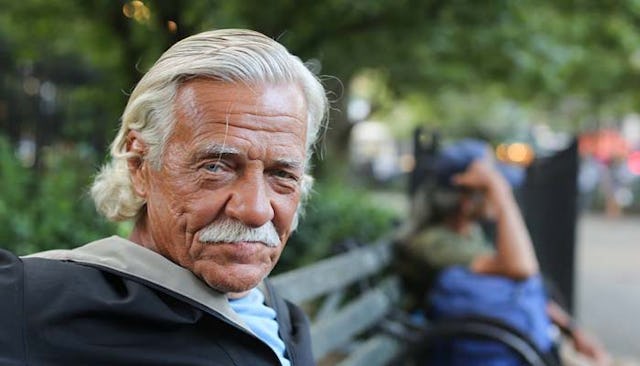Next Time You See Someone On The Street, Remember Everyone Has A Story

Humans of New York shares one homeless man’s story
Everyone has a story.
It’s something that is easy to forget. It’s easy to place certain people in an “other” category, and we do it often — usually to cope with the profound unfairness of this world. How do we wrap our brains around the idea of someone not having a home, or simply walk by someone who needs help in the street? It’s easier to ignore the idea that there may have been a rich life preceding a descent into homelessness.
Humans of New York shared a story today that is touching thousands.
Humans of New York interviewed a man who is homeless. He rides the subways at night, sleeps on benches if it’s warm, and visits soup lines to eat. He tells the story of a series of events he believes got him to this point in his life, and it’s devastating.
“She committed suicide a week prior to our thirtieth anniversary,” he explains of his wife, Holly. “Our oldest daughter had died of leukemia a couple years earlier. Holly took it extra hard. We drifted apart. We’d parse our words. Nothing was natural anymore: ‘Do we talk this way?’ ‘Do we laugh at this moment?’ ‘ Do we even have a right to laugh?’ But I still thought we were doing OK.”
“Things weren’t like they used to be,” he explains. “But I still thought things were OK. We rented a hotel room for our thirtieth anniversary. I was supposed to meet her there after work. She overdosed on pills before I got there. I don’t know why she did it that way. She said in her note that she wasn’t angry, but I don’t know why she did it that way.”
It’s a personal story, and one you may not relate to — but it speaks to the human experience, even if the particulars may be different. People go through things that change them, make them harder to love — make it harder for them to love, too. How often we forget this when dealing with the outside world. We are so often in our own heads, dealing with our own demons that we forget that everyone has them.
He explains that he fell apart after his wife’s suicide and starting doing drugs to cope. He lost his job when he began hallucinating in a presentation. He gave his severance package to his kids eight years ago and has been on the street ever since.
“I’m just existing. I wasn’t a good husband. I wasn’t a good father. And now I’m doing penance,” he ends his interview.
If we were able to see the humanity in others, the world would be a better place. Some people have endured enough pain for two or three lifetimes. You never know who a person was before life began to break them, and none of us are immune to tragedy. We should just count our blessings if we’ve always been able to somehow put ourselves back together.
“Empathizing with the homeless and the poor inevitably leads to a realization of how profoundly unfair the world can be,” one commenter on the photo put it so eloquently. “There are a surprising number of adults who are unwilling to acknowledge this…
“Victim-blaming is so often about separating ourselves from a victim so that we feel that we are immune to the forces which impacted their lives.”
This article was originally published on